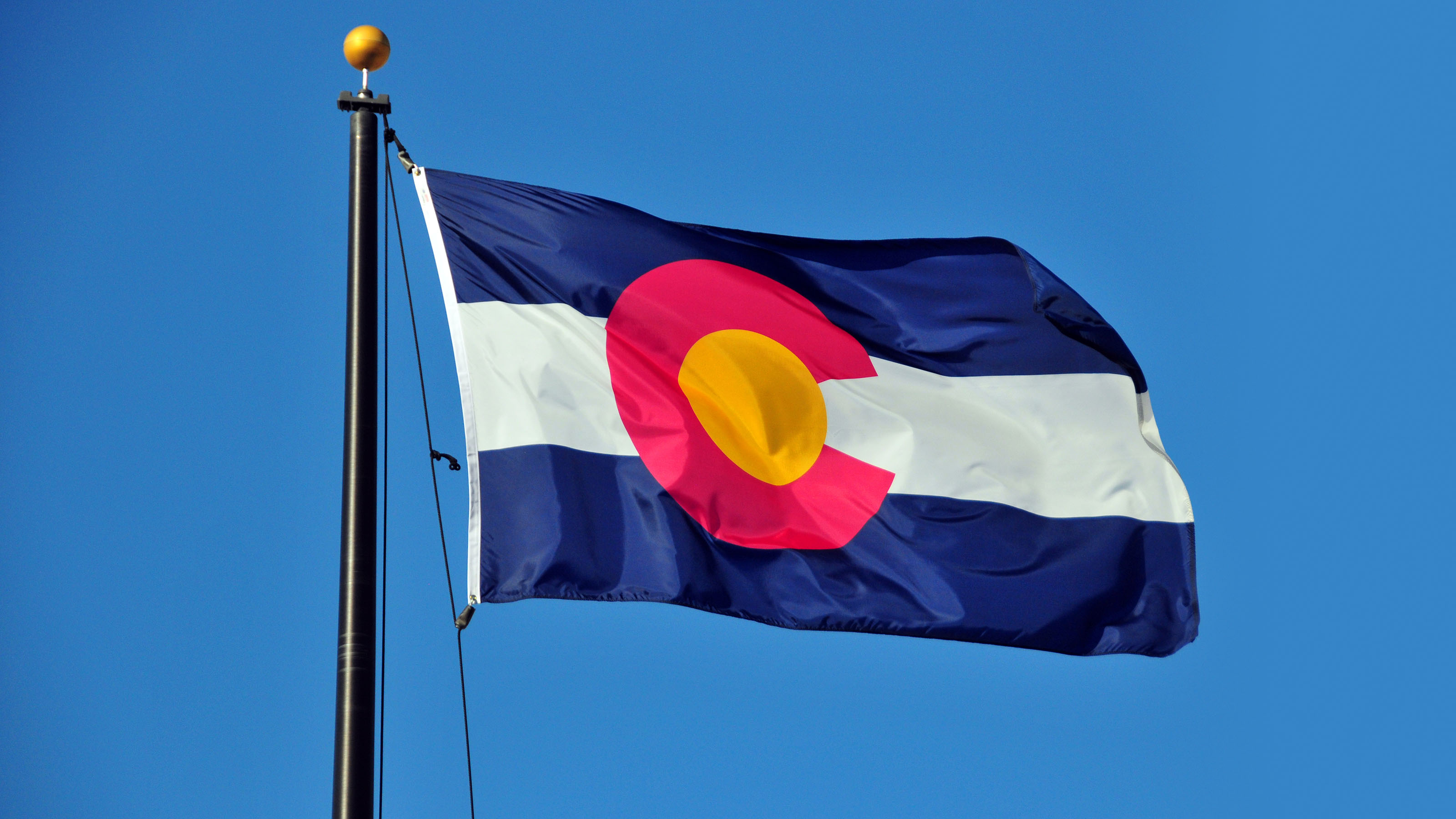Colorado Tax Guide
Explore Colorado's state tax rates for income, sales, property, retirement, and more. Learn how Colorado compares nationwide.

Kate Schubel

Profit and prosper with the best of Kiplinger's advice on investing, taxes, retirement, personal finance and much more. Delivered daily. Enter your email in the box and click Sign Me Up.
You are now subscribed
Your newsletter sign-up was successful
Want to add more newsletters?
Navigating the complexities of state taxes can be daunting, but understanding Colorado's tax landscape is essential for residents and newcomers alike.
In this guide, we'll explore key components of The Centennial State's tax system, from income and sales taxes to property taxes and retirement benefits.
See also: 10 Cheapest Places to Live in Colorado
From just $107.88 $24.99 for Kiplinger Personal Finance
Become a smarter, better informed investor. Subscribe from just $107.88 $24.99, plus get up to 4 Special Issues

Sign up for Kiplinger’s Free Newsletters
Profit and prosper with the best of expert advice on investing, taxes, retirement, personal finance and more - straight to your e-mail.
Profit and prosper with the best of expert advice - straight to your e-mail.
Colorado taxes: Overview
Colorado has a flat income tax, which keeps things pretty straightforward for most people. And thanks to the Taxpayer’s Bill of Rights (TABOR), residents can sometimes get tax refunds when the state brings in more money than expected.
Sales tax in Colorado is a different story. It starts low at the state level, but local rates vary, so what you pay depends on where you shop.
Colorado also offers some helpful tax breaks, especially for older residents and families, including relief on property taxes and special rules around Social Security.
- For instance, families may benefit from tax-exempt essentials like groceries and diapers, and a new Colorado tax credit is designed to help those with children under 17.
- Older Coloradans may qualify for a homestead property tax exemption. Colorado's Promise Tax Credit also offers students two years of free college.
Those and other elements contribute to a tax environment that balances fiscal needs with resident benefits.
Here's more to know about Colorado state taxes, whether you're a current or prospective resident.
[Data for this state tax guide was gathered from a number of sources including the Census Bureau, the state’s government website, the Sales Tax Handbook, and the Tax Foundation. Property taxes are cited as a rate percentage rather than the assessed value.]
Colorado income tax rate

Colorado's income tax rate is 4.4%. However, as mentioned, the state also has a unique TABOR program.
TABOR, or the Taxpayer's Bill of Rights, is a 1992 Colorado constitutional amendment that limits government revenue growth to inflation plus population increases. It requires voter approval for tax hikes; any revenue collected above the limit must be refunded to taxpayers, so it often generates refunds.
Note: With TABOR, residents must actively opt-in to receive TABOR refunds by checking a box on their state tax return. The deadline for filing state taxes and claiming the refund is April 15, 2025, or October 15, 2025, if filing for an extension.
Related: Don't Miss Your Colorado TABOR Refund When Filing Taxes.
- Some cities and localities in Colorado impose a monthly payroll tax.
- Social Security Benefits: Social Security income is deductible for taxpayers aged 65 and over. (More on that below.)
- For the 2025 tax year, taxpayers under age 55 can exclude up to $15,000 of income from a military retirement plan.
- Railroad Retirement benefits are exempt from state tax in Colorado.
Colorado has also changed its Social Security tax policy. Colorado already allows those 65 and older to subtract their Social Security benefits from state taxable income if their adjusted gross income (AGI) is below certain thresholds.
However, as of 2025, the state is expanding this exemption to those aged 55-64 with similar AGI limits. (For individual filers, the AGI limit is $75,000, while couples filing jointly can earn up to $95,000 and still qualify for the full deduction.)
For more information, see Two States Reform Social Security Policy in 2025.
Colorado retirement taxes
Although Colorado taxes Social Security benefits, some retirees can exclude all their Social Security benefits from their taxable income. Colorado also allows a retirement income deduction of up to $20,000 for taxpayers 55 and older. Retirees 65 and older may deduct up to $24,000.
- Income Tax on Taxable Income: Flat rate of 4.25% (for the 2024 tax year).
- Social Security: Partially taxable for some retirees (fully deductible for taxpayers 65 and older)
- Pensions: Partially taxable
- 401(k) and IRA Distributions: Taxable
Colorado sales tax

Colorado's state sales tax is 2.9%. Localities can add as much as 8.3%, and the average combined Colorado sales tax rate is 7.86%, according to the Tax Foundation.
- Groceries: Exempt
- Clothing: Taxable
- Motor Vehicles: Taxable
- Prescription Drugs: Exempt
What is the property tax rate in Colorado?

In Colorado, the average property tax rate as a percentage of assessed home value is 0.5%, according to the Tax Foundation.
Colorado Property Tax Breaks for Retirees
Colorado Property Tax Exemption for Adults 65 and Older: Colorado offers a property tax exemption for older adults aged 65 or older. Specific requirements must be met, but if you qualify, 50% of the first $200,000 of the value of a primary residence is exempt from property tax.
An applicant or married couple can apply for the exemption on only one property, which must be their primary residence. Married couples and individuals who apply for the exemption on multiple properties cannot claim the property tax exemption.
The qualifying resident must also have owned and lived in the home for at least ten years.
Colorado gas tax

Gasoline: $0.22 per gallon
Diesel: $0.21 per gallon.
Source: The Sales Tax Handbook
Colorado taxes on alcohol and tobacco
Product | Tax Amount |
|---|---|
Cigarettes | $0.84 per pack of 20 cigarettes |
All other tobacco products | 40% of the manufacturer's selling price |
Source: The Sales Tax Handbook
Product | Tax Amount |
|---|---|
Beer | $0.08 per gallon |
Wine | $0.28 per gallon |
Liquor | $2.28 per gallon |
Source: The Sales Tax Handbook
Marijuana: For retail purchases of marijuana in Colorado, a 15% state marijuana sales tax applies, and a 15% excise tax, plus state and local sales taxes.
Colorado estate and inheritance tax
Colorado doesn't have an estate or inheritance tax.
More on Colorado Taxes
Profit and prosper with the best of Kiplinger's advice on investing, taxes, retirement, personal finance and much more. Delivered daily. Enter your email in the box and click Sign Me Up.

Kelley R. Taylor is the senior tax editor at Kiplinger.com, where she breaks down federal and state tax rules and news to help readers navigate their finances with confidence. A corporate attorney and business journalist with more than 20 years of experience, Kelley has helped taxpayers make sense of shifting U.S. tax law and policy from the Affordable Care Act (ACA) and the Tax Cuts and Jobs Act (TCJA), to SECURE 2.0, the Inflation Reduction Act, and most recently, the 2025 “Big, Beautiful Bill.” She has covered issues ranging from partnerships, carried interest, compensation and benefits, and tax‑exempt organizations to RMDs, capital gains taxes, and energy tax credits. Her award‑winning work has been featured in numerous national and specialty publications.
- Kate SchubelTax Writer
-
 4 High-End Experiences Worth the Splurge After 50
4 High-End Experiences Worth the Splurge After 50These curated date ideas provide the perfect backdrop for couples ready to enjoy the very best that the world has to offer.
-
 Health Care Stocks Have Sagged. Can You Bet on a Recovery?
Health Care Stocks Have Sagged. Can You Bet on a Recovery?The flagging health care sector has perked up a bit lately. Is it time to invest?
-
 Costco's Auto Program: Can Membership Pricing Really Save You Money on a Car?
Costco's Auto Program: Can Membership Pricing Really Save You Money on a Car?Costco's Auto Program can simplify the car-buying process with prearranged pricing and member perks. Here's what to know before you use it.
-
 2026 Tax Refund Delays: 5 States Where Your Money Is Stuck
2026 Tax Refund Delays: 5 States Where Your Money Is StuckState Tax From New York to Oregon, your state income tax refund could be delayed for weeks. Here's what to know.
-
 How One Extra Dollar of Income Can Cost You Thousands in Retirement
How One Extra Dollar of Income Can Cost You Thousands in RetirementRetirement Even modest changes in retirement income can raise Medicare premiums under IRMAA. Here’s how a small increase can affect your retirement costs.
-
 First the Penny, Now the Nickel? The New Math Behind Your Sales Tax and Total
First the Penny, Now the Nickel? The New Math Behind Your Sales Tax and TotalRounding Tax A new era of "Swedish rounding" hits U.S. registers soon. Learn why the nickel might be on the chopping block, and how to save money by choosing the right way to pay.
-
 Over 65? Here's What the New $6K Senior Tax Deduction Means for Medicare IRMAA
Over 65? Here's What the New $6K Senior Tax Deduction Means for Medicare IRMAATax Breaks A new tax deduction for people over age 65 has some thinking about Medicare premiums and MAGI strategy.
-
 U.S. Congress to End Emergency Tax Bill Over $6,000 Senior Deduction and Tip, Overtime Tax Breaks in D.C.
U.S. Congress to End Emergency Tax Bill Over $6,000 Senior Deduction and Tip, Overtime Tax Breaks in D.C.Tax Law Here's how taxpayers can amend their already-filed income tax returns amid a potentially looming legal battle on Capitol Hill.
-
 How to Open Your Kid's $1,000 Trump Account
How to Open Your Kid's $1,000 Trump AccountTax Breaks Filing income taxes in 2026? You won't want to miss Form 4547 to claim a $1,000 Trump Account for your child.
-
 In Arkansas and Illinois, Groceries Just Got Cheaper, But Not By Much
In Arkansas and Illinois, Groceries Just Got Cheaper, But Not By MuchFood Prices Arkansas and Illinois are the most recent states to repeal sales tax on groceries. Will it really help shoppers with their food bills?
-
 7 Bad Tax Habits to Kick Right Now
7 Bad Tax Habits to Kick Right NowTax Tips Ditch these seven common habits to sidestep IRS red flags for a smoother, faster 2026 income tax filing.